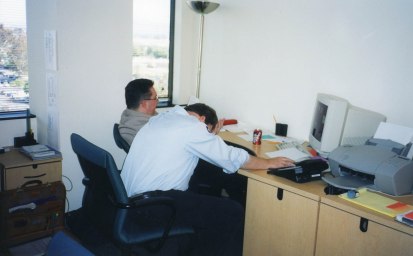So many articles in the broadsheets about people leaving London and their reasons why, some real and some spoofed for comic effect. It stirs up many emotions in people, given the pressures of modern life and the increasing ratcheting up of costs of sustaining a family and a young business in London. I moved here in 1976 from NI and lived first in Guildford a commuter town in Surrey, then Belsize Park in North London, mixed with time in Silicon Valley off and on since 1987. Now I am back in the countryside of Wiltshire, I have built start-ups in both London, Silicon Valley and in the rural areas of the UK, so I think have an interesting perspective.
So let’s get real the better opportunities for creating a team, cutting deals and getting funded are in London, simply by the volume of people, networks and funds to plug into. In my last start-up we were based in Clerkenwell and by that stage of my start-up experience knew how to slipstream all the players that created opportunities to make a name for yourself. But of course if you are less experienced and maybe never going to be the number one or two in your global market space, it can be the opposite, a more daunting, alienating place where you feel you are not at the party.
There is definitely an inner game feel to London and some just do not ever get the invites to the inner sanctum of top-level VC funding and all those cool Pitching events at Downing Street and the Palace. That, if it is happening to you, even though it is all around you in London can make you feel like a failure. Very few actually make it as a tech start-up in London, although from all the column inches, blogs and networking events devoted to the space it is difficult to see through that veneer. My calculated guess is that 98% never get funded beyond family and friend’s rounds, of which only 30% of the 2% that do will survive and maybe you will remember 3 brand names that did win in 10 years time.
It’s a tough game and takes real stamina, resilience and experience around you to make it, and that is without taking into account the negative macro events that can wipe you out like Lehmans and the periodic UK/Global market crashes every 5/7 years. But of course if you were looking at the start-up world in a logical and reasoned basis you probably are not suited to the crazy world that we entrepreneurs inhabit. Yes you must really believe as a founder beyond all the negative pushbacks that you are right about your product/service and must keep the idealist attitude alive.
So you can fail in London too, and it is why most British start-ups fail in Silicon Valley as well because the competition there is even more fierce and the money game even more aggressive than in the UK and most are not tough or experienced enough to compete on equal terms. But you are in Cardiff, Bath, Bristol, Birmingham, Manchester, Newcastle, Edinburgh, Glasgow, Belfast and Dublin, what chance do you stand cut off from Boris’s gleaming Tech City? Well it depends a lot on what level you are playing at, what your goals are and how you set about creating your own networks.
There are great start-ups out across the UK and Ireland, bright people with bright ideas, but the thing that defines a winning company is the drive to reach the goals that are set day one in the business plan. If you are out to build a global company at some point you are going to have to go where the big deals are being done, be it London, New York, Frankfurt and San Francisco. This does not mean that you have to move the whole company from the low-cost base you might have established but it does mean a lot of travel and nights away connecting to the networks that open the door to enterprise clients and the funding that follows those early big name wins.
It requires a concerted effort as well not just dipping in and out every 90 days as I see so many companies doing, the people in the big city networks won’t take time with you and create that continuity of connection if they do not sense your committment to the cause. There is no easy or quick way of doing this, the hours day and night have to be put into this programme. If you are lucky you may find key experienced champions in those networks that like you and your company and will get alongside in accelerating your access and growth. It is certainly a lonely thing to do on your own and it never does any harm to have someone watching your back on the circuit when travelling and running hard.


